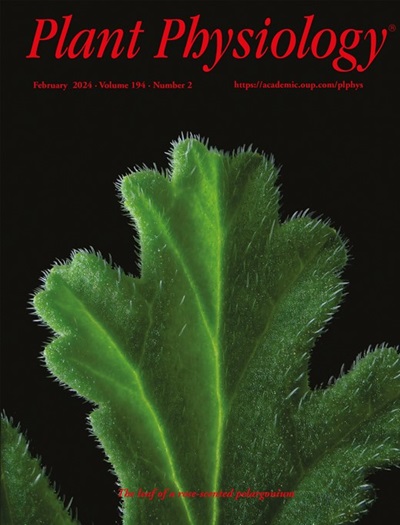Designed to breathe: synthetic biology applications in plant hypoxia
IF 6.5
1区 生物学
Q1 PLANT SCIENCES
引用次数: 0
Abstract
Over the past years, plant hypoxia research has produced a considerable new number of resources to monitor low oxygen responses in model species, mainly Arabidopsis thaliana. Climate change urges the development of effective genetic strategies aimed at improving plant resilience during flooding events. This need pushes forward the search for optimized tools that can reveal the actual oxygen available to plant cells, in different organs or under various conditions, and elucidate the mechanisms underlying plant hypoxic responses, complementing the existing transcriptomics, proteomics and metabolic analysis methods. Oxygen-responsive reporters, dyes and nanoprobes are under continuous development, as well as novel synthetic strategies that make precision control of plant hypoxic responses realistic. In this review, we summarize the recent progress made in the definition of tools for oxygen response monitoring in plants, either adapted from bacterial and animal research or peculiar to plants. We moreover highlight how adoption of a synthetic biology perspective has enabled the design of novel genetic circuits for the control of oxygen-dependent responses in plants. Finally, we discuss the current limitations and challenges towards the implementation of synbio solutions in the plant low oxygen biology field.求助全文
约1分钟内获得全文
求助全文
来源期刊

Plant Physiology
生物-植物科学
CiteScore
12.20
自引率
5.40%
发文量
535
审稿时长
2.3 months
期刊介绍:
Plant Physiology® is a distinguished and highly respected journal with a rich history dating back to its establishment in 1926. It stands as a leading international publication in the field of plant biology, covering a comprehensive range of topics from the molecular and structural aspects of plant life to systems biology and ecophysiology. Recognized as the most highly cited journal in plant sciences, Plant Physiology® is a testament to its commitment to excellence and the dissemination of groundbreaking research.
As the official publication of the American Society of Plant Biologists, Plant Physiology® upholds rigorous peer-review standards, ensuring that the scientific community receives the highest quality research. The journal releases 12 issues annually, providing a steady stream of new findings and insights to its readership.
 求助内容:
求助内容: 应助结果提醒方式:
应助结果提醒方式:


